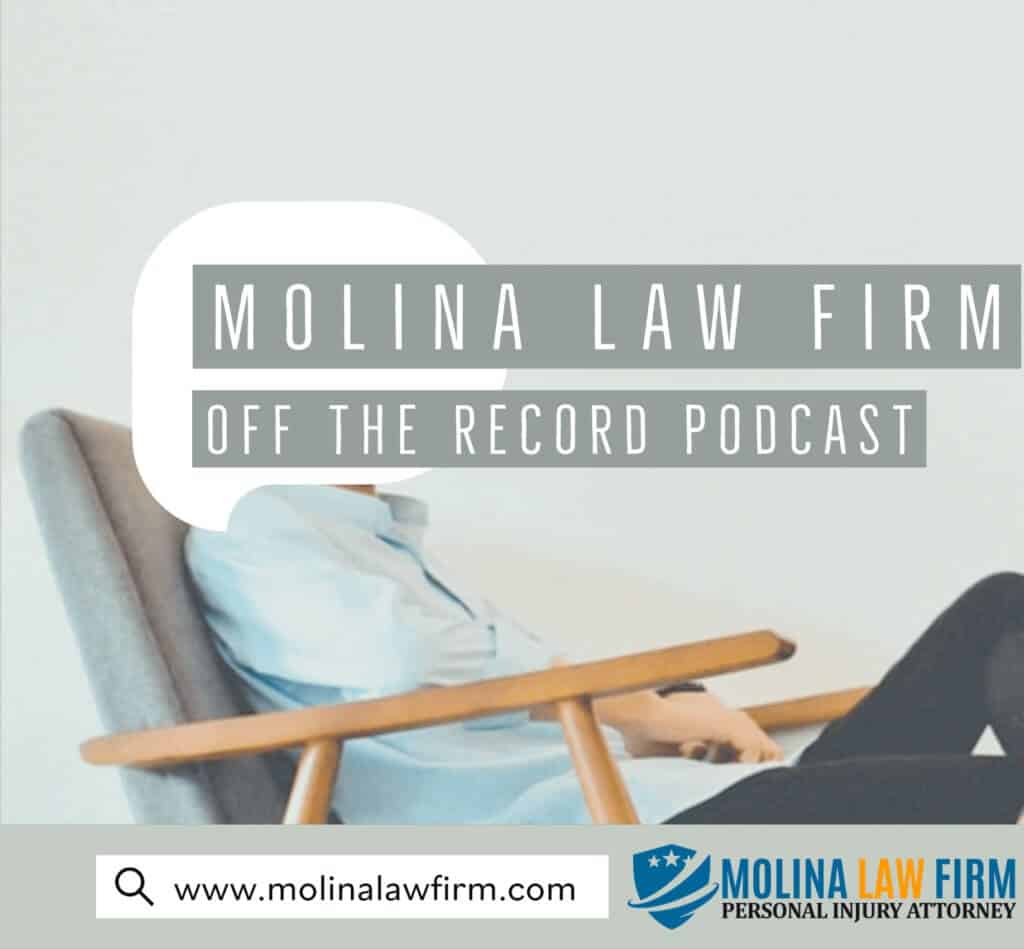Texas Wrongful Death Damages
A wrongful death claim involves the death that was causd by someone else’s negligence. If you’re dealing with the aftermath of a wrongful death, it’s important to understand the available Texas wrongful death damages available to you. 
Wrongful death claims provide a way for surviving family members to seek compensation for the loss of their loved one as a result of another party’s negligent actions. In Texas, the Wrongful Death Statute allows eligible family members to file a claim and to pursue Texas wrongful death damages for their losses.
If you’re in Houston, Texas, the Molina Law Firm can provide expert guidance and representation.
Understanding Texas Wrongful Death Damages and Claims
What Qualifies as Wrongful Death in Texas
Under Texas law, wrongful death is defined as a death caused by the wrongful act, neglect, carelessness, unskillfulness, or default of another person or entity. This can include deaths resulting from car accidents, workplace accidents, medical malpractice, product defects, or even criminal acts.
In order to qualify as a wrongful death, there must be evidence to show that the defendant’s actions or negligence directly caused the death of the individual. This can be a complex and challenging process, which is why having a knowledgeable wrongful death attorney is crucial.
The Right to File a Wrongful Death Lawsuit
Not everyone has the right to file a wrongful death lawsuit in Texas. Only specific family members are eligible to bring a claim. Generally, the following individuals have the right to file a wrongful death lawsuit:
- Spouse of the deceased
- Children of the deceased
- Parents of the deceased
If none of these individuals are available, a personal representative or executor of the deceased’s estate can file the claim on behalf of the family. It’s important to note that wrongful death claims must be filed within two years of the date of the accident, as Texas law has a statute of limitations.
Understanding the criteria for qualifying as a wrongful death and knowing who has the right to file a lawsuit is essential when pursuing a wrongful death claim in Texas. By having a clear understanding of the laws and regulations surrounding wrongful death cases, you can navigate the legal process with confidence.
How to Prove Negligence In A Wrongful Death Case
Proving negligence is essential to succeed in a wrongful death case. As the plaintiff, you must establish that the defendant’s negligence directly caused the death of your loved one. However, proving negligence in a wrongful death case can be complex since there is the death of a main witness. Here’s what you need to know:
- Gather Evidence: Collecting relevant evidence is crucial in proving negligence. This may include accident reports, medical records, witness testimonies, and expert opinions. A comprehensive collection of evidence strengthens your case and supports your claim.
- Analyze Medical Records: Medical records play a crucial role in establishing negligence. Carefully review all medical documentation and consult with medical experts to determine whether any medical malpractice or negligence contributed to the death of your loved one.
- Interview Witnesses: Witness testimonies can provide valuable insight into the events leading to the fatal incident. Identifying and interviewing witnesses can help corroborate your version of events and provide additional evidence to support your claim.
Recoverable Texas Wrongful Death Damages
If successful in a wrongful death claim, the surviving family members can recover various damages in Texas. These damages can be divided into two categories: economic damages and non-economic damages.
Economic Damages: Financial Support and Medical Bills
Economic damages cover the financial losses that the family members have suffered as a result of the wrongful death. These damages can include:
- Medical bills: The family members may be compensated for the medical expenses incurred by the deceased before their passing.
- Funeral expenses: The cost of arranging the funeral and burial can be recovered as part of the economic damages.
- Lost income: If the deceased was the primary earner in the family, the surviving family members may be entitled to compensation for the loss of their financial support.
- Other expenses related to the death: This can include property damage, loss of benefits, and any other financial losses directly caused by the wrongful death.
In order to recover these economic damages, it is important to provide evidence of the financial losses incurred by the family members. This can include medical bills, funeral receipts, employment records, and other relevant documents.
Non-Economic Damages: Emotional Pain and Suffering
Non-economic damages are intended to compensate the surviving family members for the emotional pain and suffering they have endured due to the wrongful death of their loved one. In wrongful death cases, these damages can be significant. These damages can include:
- Emotional pain and suffering: This encompasses the mental anguish, grief, and emotional distress experienced by the family members as a result of the loss.
- Loss of companionship: The family members may be entitled to compensation for the loss of the deceased’s companionship, love, and guidance.
- Loss of financial support: If the deceased was providing financial support to the family, the surviving members may be compensated for the loss of this support.
When seeking non-economic damages, it is important to present evidence of the impact the wrongful death has had on the family members’ emotional well-being. This can include testimonies, medical records, and other supporting documentation.
Having a skilled wrongful death attorney is essential in accurately assessing the value of these damages and presenting the evidence in a persuasive manner during negotiations or in court. A knowledgeable attorney can help you navigate through the legal process and fight for the full compensation that you and your family deserve.
What is a Survival Claim
In addition to a wrongful death claim, the deceased’s estate can also file a survival claim in Texas. A survival claim is a legal action brought on behalf of the deceased for any pain and suffering, medical expenses, or other damages they incurred between the time of the accident and their death. It is separate from the wrongful death claim and aims to compensate for the losses suffered by the deceased before their passing. The damages awarded in a survival claim become part of the deceased’s estate.
Winning Your Wrongful Death Claim in Texas
Successfully winning a wrongful death claim in Texas requires careful preparation and building a strong case. It is imperative to have a skilled and experienced wrongful death attorney by your side to guide you through the legal process, gather necessary evidence, and fight for your rights.
The Molina Law Firm, based in Houston, Texas, has over 20 years of experience handling wrongful death cases.
If you’re dealing with the tragic loss of a loved one, don’t navigate the complexities of a wrongful death claim alone. Contact the Molina Law Firm at (281) 922-4300 to schedule a consultation and learn more about how their experienced team can assist you in winning your wrongful death claim.
Free Accident Case Review
If you or a loved one has suffered an injury in an accident, fill out the form below to start your free case review.
Common Types of Auto Accidents in Houston
For fastest service call us!
If this is an urgent matter, please consider calling us instead at (281) 922-4300 or click on the phone icon on the left.
Visit our office or we can come to you!
What To Do After a Houston Automobile Accident?
Frequently Asked Questions About Car Accidents
In most car accidents, the at-fault driver and the insurance carrier are liable for all claims resulting from the accident. Sometimes, when the police determine that one vehicle was not completely at fault, then more than one person may be liable and pay for damages. Your personal injury attorney can help you get the compensation you deserve after your car accident.
In Texas, a person that is the majority at fault for an accident may not recover damages. You should seek counsel to conduct the necessary investigation in this situation.
Insurance companies are looking out for their own financial best interests. You will need to hire an attorney to look out for your interests. Once you accept a settlement, then you will be prevented from any future recovery. I normally do not recommend accepting a quick settlement when someone does not have an attorney.


